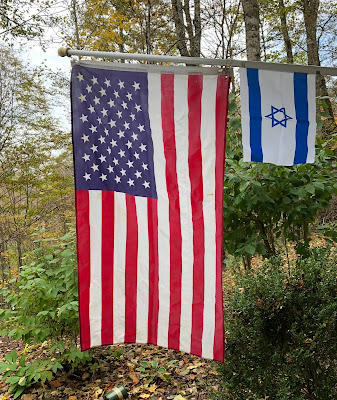In my Baby Boomer g-generation, many of us went one way, and some of us went another.
Published in 2017, King of Soul told a story of what happened here, Stateside, on a college campus in 1969-70. In writing the book, I included scenes from Vietnam. To properly depict the challenges and hardships that our soldiers faced there, I retrieved, from several reliable sources, accounts of several battles.
In order to maintain accuracy and give honor where honor is due, I lifted and carefully rewrote a long passage from Dave Galloway's memoir,
We Were Soldiers Once, And Young, by Lt. Gen. Harold G. Moore and reporter/author Joe Galloway.
My rewritten account of certain events at the battle of Ia Drang is found in chapter 6 of my book. On this Memorial Day, I want to call your attention to the bravery and dedication demonstrated by our troops. Here is an excerpt of my retelling of what the "Lost Platoon" endured on that fateful day, November 14, 1965 :
So Lt. Henry got hit; he was kneeling when he caught the fatal bullet. A few moments later, his replacement in command, Sgt. Palmer took a bullet in the head, was suffering and then a grenade landed nearby and snuffed the life out of him.I have appreciation for our guys who went over there and served in Vietnam while I, and many thousands of others, were skating through on a student deferment or a high draft number.
The encircled infantrymen of the Lost Platoon were all on the ground now, unable to raise their heads because, to do so, and they knew it, would bring instant death. They shifted into defense positions. Suddenly a mass assault came from three directions; they slapped their M-16s on full automatic and mowed down the oncoming enemy.
Now with eight or nine men of the platoon’s twenty-nine down, and thirteen wounded, they were caught under fire in a 25-yard perimeter. Medic Charlie Lose crawled from man to man, treating their wounds, amping up their resolve, boosting their courage, keeping the breath going in and out of their lungs, the blood running through their arteries, the pain down to a dull roar as much as possible, the bandages going on and the defensive bullets going out, serving up medical treatment and administering raw courage itself with all that life support.
Sgt. Rob, platoon weapons forward guy, now in charge, had radioed elevations and deflections from the lost platoon’s position so that Specialist Vincent, down below, could help protect them with closely-placed mortar rounds fired from the LZ. When they ran out of mortar rounds, the mortar crews grabbed their personal weapons and started up the hills to assist Sgt. Rob and whatever was left of 2nd Platoon.
A hell of a lot of fire was raining down on the guys up on the ridge; the only cover they had was the rise of the hill itself. Sgt. Rob said to Sgt. Ernie we gotta get out of here; stood up, and immediately got shot in the head, fell over backwards on a log, the radio on his back. Sgt. Ernie, now in charge after Lt. Henry, Sgt. Carl and now Sgt. Rob had all gone down, reached under the log, grabbed the radio handset and called in more artillery and mortars. He told the guys down below he would direct their fire in as close as possible. The artillery guys never could establish the platoon’s position exactly, but Lt. Riddle could adjust fire based on Sgt. Ernie’s sensing.
And that is what they did, shot mortar rounds all around the stranded guys, without killing them, but instead killing the NVA soldiers who were assaulting them from three sides.
Over 58,000 of those guys gave their last full measure of devotion, so they never came back. On this Memorial Day, we honor them along with all the thousands of men and women who have defended our nation during these 225 years of prospering in Constitutional freedom.
And to all you Reserve, Active and Veteran citizens of this United States of America, thank you for putting your life on the line for us! Keep up the good work!
King of Soul



